The original Boekenhoutskloof farm in Franschhoek was established in 1776. The chairs on the now famous wine labels all pay tribute to the skills of the 18th century craftsmen and their achievements in creating beautiful furniture from natural sources, in this case, mostly Boekenhout or indigenous Cape Beech trees, which were highly prized for furniture making at the time.

Under the leadership of Marc Kent, the first Boekenhoutskloof wines were produced in 1996 after the property was bought in 1993, with the legendary 1997 Syrah capturing the attention of wine critics globally. Over the years, there have been several brand extensions including the creation of the Porcupine Ridge and Wolf Trap brands as well as the Chocolate Block red blend.

More recently, considerable investments in the Swartland have led to large scale plantings of mostly Syrah, which for Boekenhoutskloof culminates in the pinnacle of quality with their Porseleinberg Syrah brand managed and produced by Callie Louw. On the eve of the vintage 2021 Semillon, Cabernet Sauvignon and Syrah releases, I thought it would be an opportune moment to reflect on the quality of several back vintages of each wine. My notes were taken from a tutored masterclass in London presented by Marc Kent in January 2023.

Semillon Flight:
Traditionally made from circa 97% Semillon from three vineyards planted in 1902, 1936 and 1942, and 3% Muscat d’Alexandrie planted in 1902.
Boekenhoutskloof Semillon 2001
Honey, buttered toast, salted caramel and lanolin on the nose. Soft, piquant Sherry like palate with richness, an incredibly saline vein, and deliciously pithy and fresh with a bitter almond skin finish.
(Wine Safari Score: 92/10 Greg Sherwood MW)
Boekenhoutskloof Semillon 2002
Dark gold in colour. The nose shows mushrooms, forest floor, earthy savoury notes, old honey. The palate is creamy, revealing salted caramel, a rich core of yellow stone fruit and a nutty walnut finish. Fresher in the mouth than on the nose.
(Wine Safari Score: 93/10 Greg Sherwood MW)
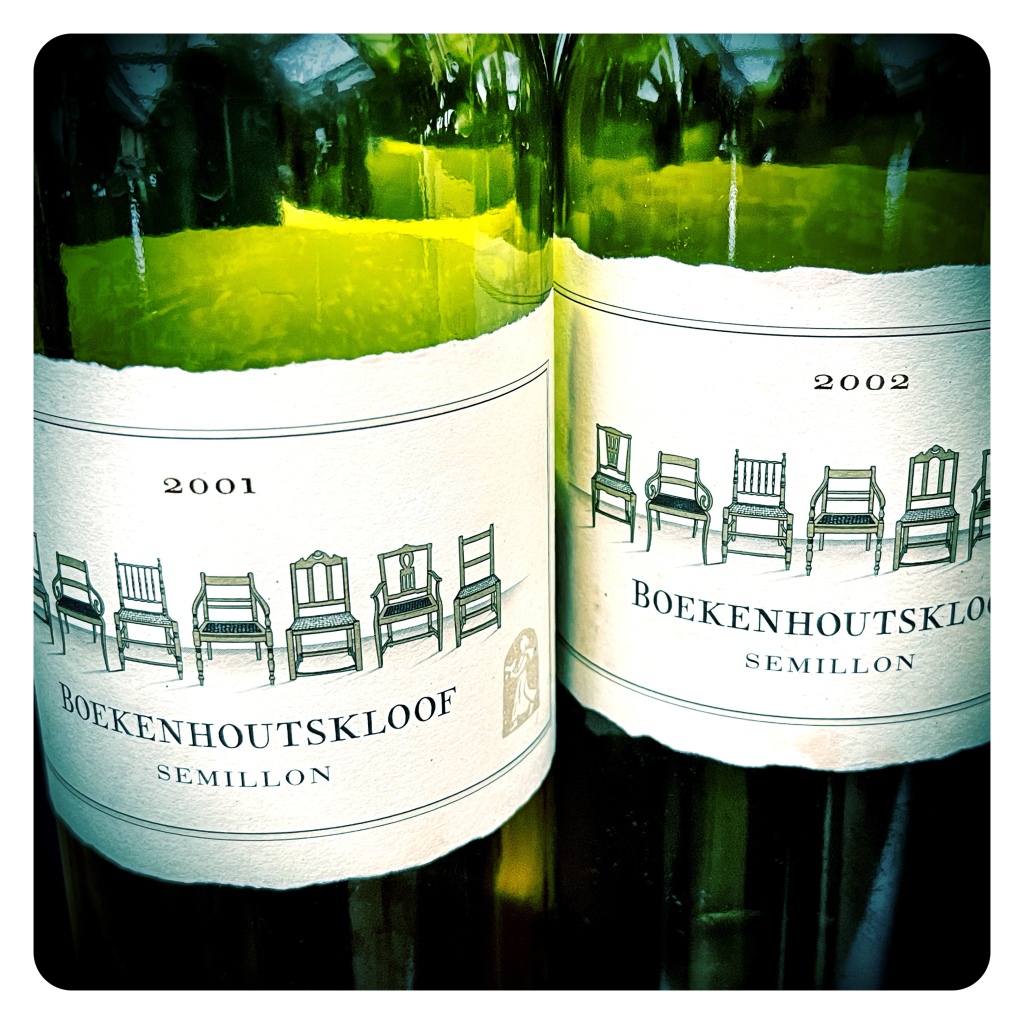
Boekenhoutskloof Semillon 2009
Aromatics of honey on buttered white toast, white blossom, honey suckle, lanolin and a touch of stony reduction. Beautiful balance and creamy texture, fabulous purity, with liquid minerality, a fine tension and a good, long concentrated finish. Truly stylish! Wow!
(Wine Safari Score: 97/10 Greg Sherwood MW)
Boekenhoutskloof Semillon 2010
Aromatics of dusty minerals, tea leaf, dry tobacco and lemon peel. The palate is creamy, pure and precise showing lemon butter, honey on white toast, and a piquant, nutty, pleasantly bitter finish. Rich and textural with plenty of dry extract, a silky texture and salty taut finish.
(Wine Safari Score: 95+/10 Greg Sherwood MW)

Boekenhoutskloof Semillon 2020
Attractive pale gold. Reductive white Burgundy nose with peach stone, crushed limestone, and smoky white citrus. Sleek and pure frutied, crystalline and focused with superb wound spring tension and a reductive, smoky minerality on the long finish.
(Wine Safari Score: 97+/10 Greg Sherwood MW)

Cabernet Sauvignon Flight:
Until the 2014 vintage, Boekenhoutskloof only produced a Wine of Origin Franschhoek Cabernet Sauvignon, which was then joined by the WO Stellenbosch Cabernet.
Boekenhoutskloof Cabernet Sauvignon 2001, WO Franschhoek
Salty caramel, piquant oak spice with savoury black tea notes with leather and sweet earthy red currant fruit underneath. Lovely intensity with a defined focus and saline, tart glassy frame. Very Claret-like, cool and classical.
(Wine Safari Score: 93/10 Greg Sherwood MW)
Boekenhoutskloof Cabernet Sauvignon 2002, WO Franschhoek
The nose is very complete and complex, full of sweet tobacco, black chai tea spice, dense earthy black currant and black plum. Plush and vibrant on the palate with glassy acids, a slightly angular frame but also beautiful balance. Quite traditional but really lovely now.
(Wine Safari Score: 94/10 Greg Sherwood MW)
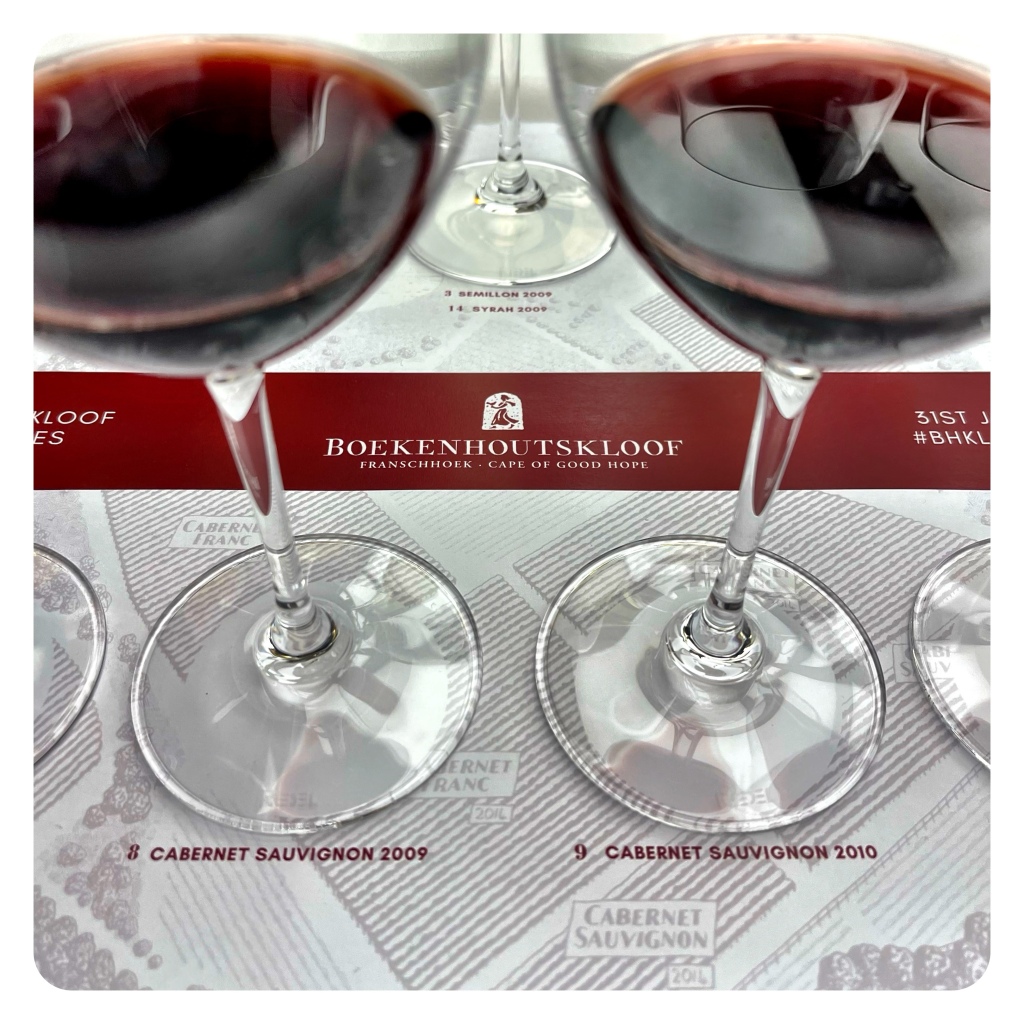
Boekenhoutskloof Cabernet Sauvignon 2009, WO Franschhoek
Big vintage, big wine. Dense and punchy with earthy blue and black fruits, stewed plums and sweet tannery leather. Plush and creamy, touch piquant with notes of tertiary sweet tomato emerging. Possibly some slight oxidation on the bottle? I would expect more from a pristine bottle of 2009, a great red vintage in SA.
(Wine Safari Score: 93/100?? Greg Sherwood MW)
Boekenhoutskloof Cabernet Sauvignon 2010, WO Franschhoek
Much tighter, denser, and compact with ample notes of tannery leather, black berry fruits and exotic peach skin top notes. Palate is youthful and fresh, still with slightly drying grippy tannins, crisp soft fresh acids and a harmonious balance overall. If the fruit holds while the tannins soften further, this could be an absolute cracker.
(Wine Safari Score: 95+/10 Greg Sherwood MW)
Boekenhoutskloof Cabernet Sauvignon 2020, WO Franschhoek
Cool, sleek and elegant. Shows coffee cream, mocha, charcoal embers and piquant black chocolate. Very fine grained, compact and harmonious with a feeling of real precision. Classy and elegant as always, with a fresh, fine grained grippy finish. Should evolve into an absolute gem.
(Wine Safari Score: 96/10 Greg Sherwood MW)
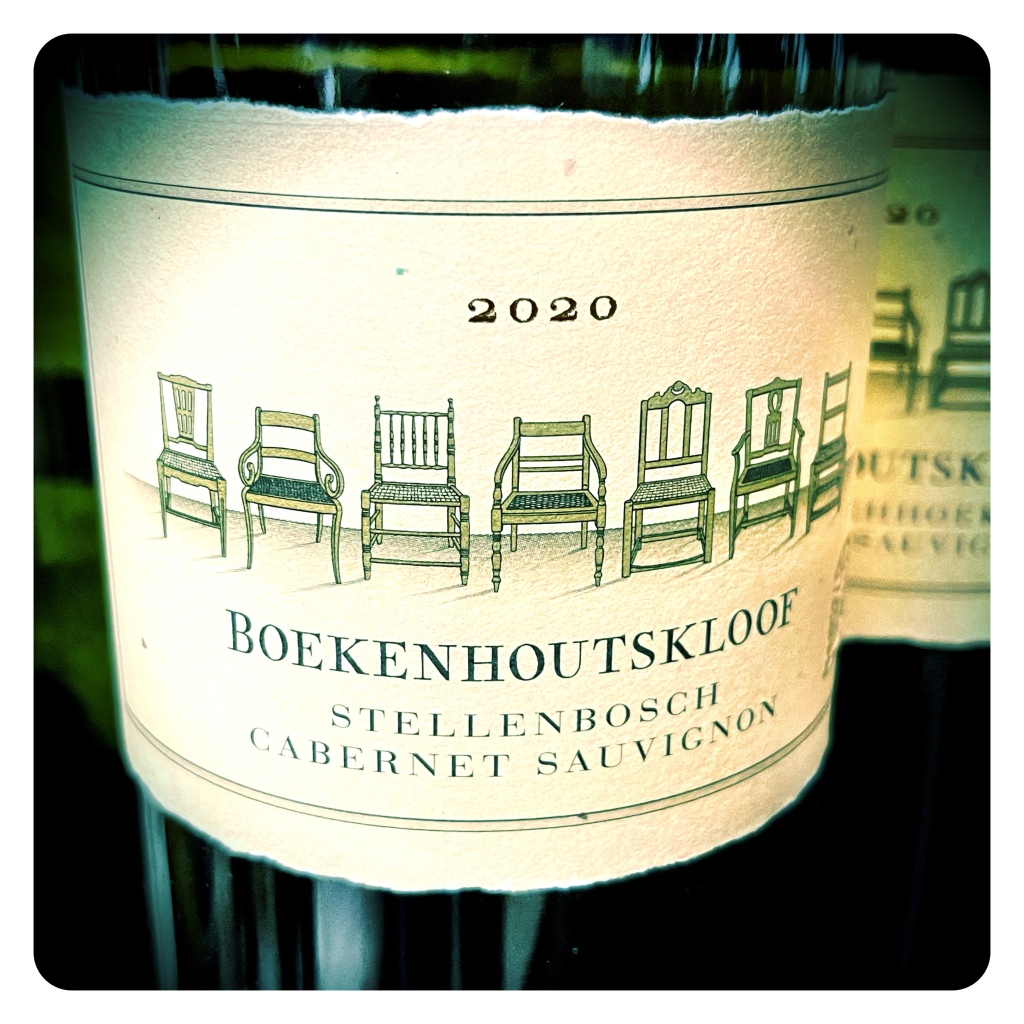
Boekenhoutskloof Cabernet Sauvignon 2020, WO Stellenbosch
Stony, broody and tight with a hint of tilled earth, graphite, black cherry and stewed earthy red berries. Lovely power, muscle and shape in the mouth with creamy drying youthful tannins, and a long, black fruited, mineral finish. Archetypal Stellenbosch Cabernet.
(Wine Safari Score: 96/10 Greg Sherwood MW)
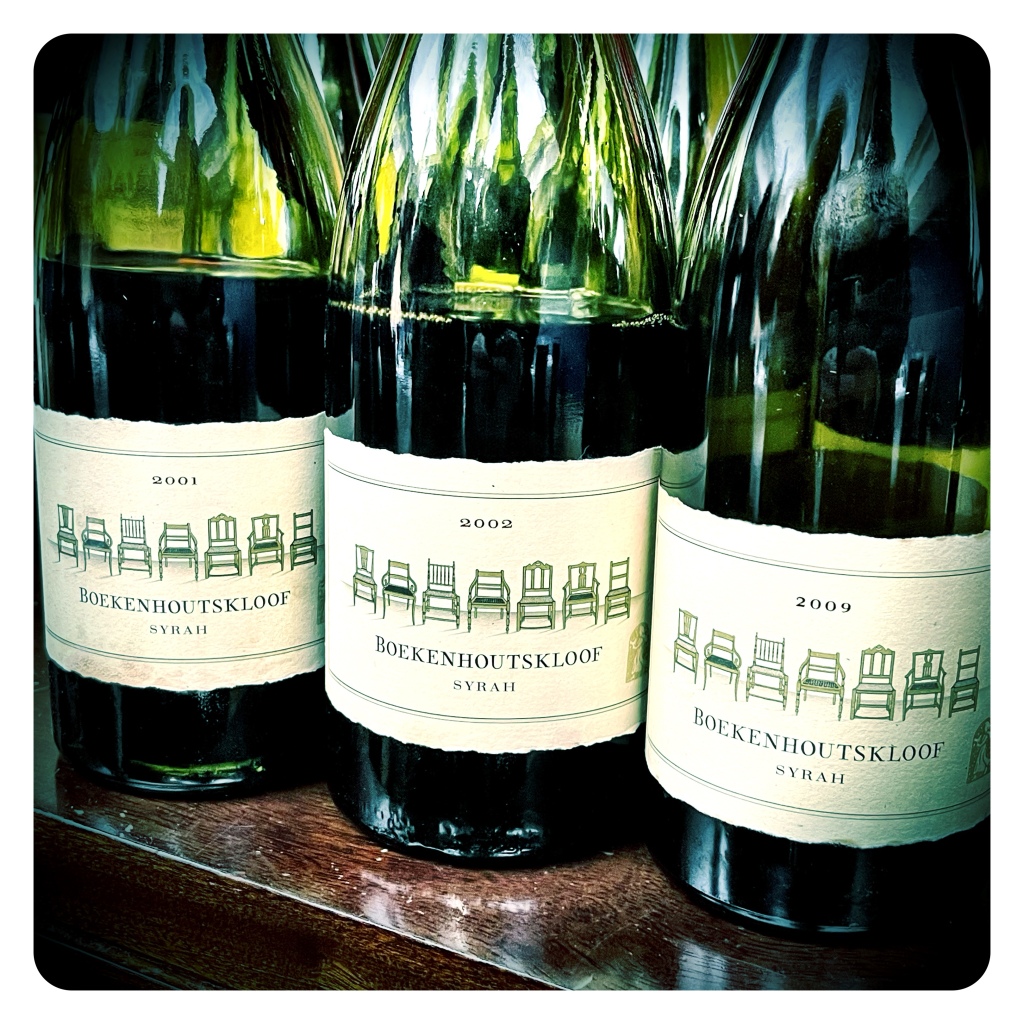
Syrah Flight – (SH21 Syrah Clone):
Boekenhoutskloof Syrah 2001, WO Western Cape
Polished mahogany, wood spice, savoury red fruits with a hint of leather and molasses. Palate is dense and lactic, chocolatey, and quite appealing. Still a big bold wine with some tertiary development on the minty finish.
(Wine Safari Score: 93/10 Greg Sherwood MW)
Boekenhoutskloof Syrah 2002, WO Western Cape
Touch of reduction still with blue and black fruits, violets and purple flowers. Palate is fresh, crisp, and taut with sweet tangy red and earthy black fruits, hints of leather, tobacco, cured meats and kalamata olive tapenade on the finish. Lovely cooler vintage.
(Wine Safari Score: 95/10 Greg Sherwood MW)
Boekenhoutskloof Syrah 2009, WO Western Cape
Cool, stony and sleek with chalky drying tannins and earthy aromatics of coffee bean, stewed plum, and sun raisined cherries. Super creamy and plush on the finish with a savoury, tertiary hint developing. Drinking very well but probably won’t improve further, so start enjoying now.
(Wine Safari Score: 94/10 Greg Sherwood MW)
Boekenhoutskloof Syrah 2010, WO Western Cape
Cooler vintage like 2002. Nose is smoky and savoury with sappy red and black berry fruit nuances, red apple skins and a stony mineral dustiness. Sweet fruited, plush and broad on the palate with savoury red berry fruits, strawberry jam and earthy, youthful notes. A serious vintage making a serious wine with a very subtle tarry finish. Yum.
(Wine Safari Score: 95+/10 Greg Sherwood MW)
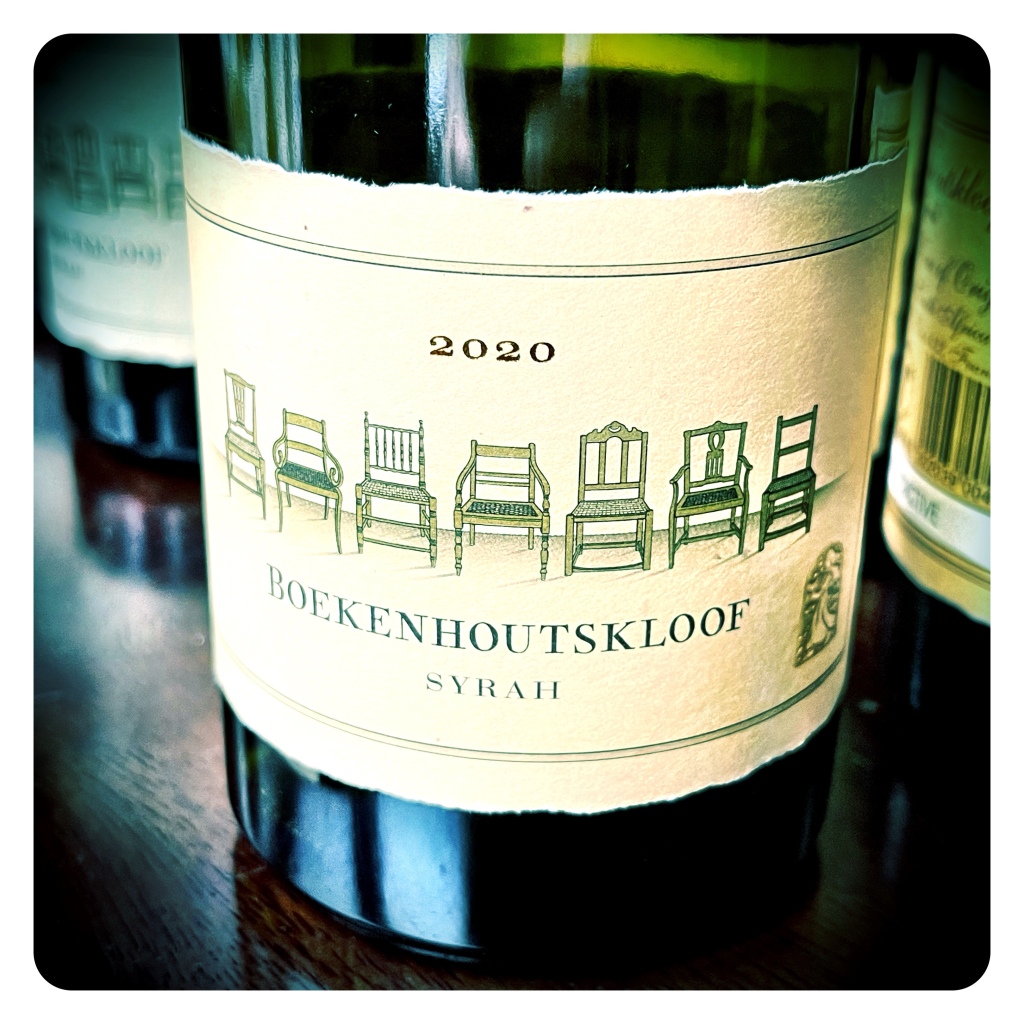
Boekenhoutskloof Syrah 2020, WO Swartland
Boekenhoutskloof are now farming over 200 hectares of Swartland fruit from three farms. (The 2011 vintage included some Porseleinberg fruit.) Newer vintages consist of 90% Porseleinberg and 10% Goldmine Syrah from the farm next door to Mullineux’s Roundstone property. Deliciously youthful and grapey with notes of violets, lavender, sweet grilled herbs, charcoal embers and a leafy sapidity. Palate is super light on its feet with purity, black cherry elegance and pithy graphite hints, finishing with a weightless concentration and a soft blueberry complexity. Very classy indeed.
(Wine Safari Score: 96/10 Greg Sherwood MW)
The wines are imported into the UK by New Generation Wines and are available retail from South African fine wine specialist merchant Museum Wines. http://www.museumwines.co.uk








































